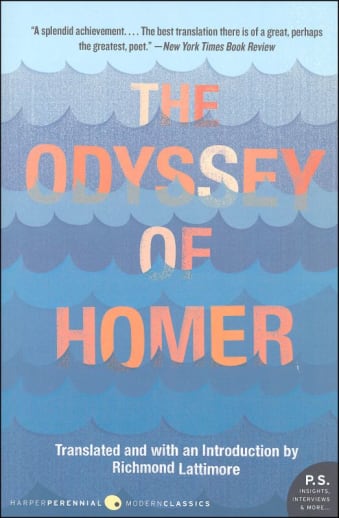This Perennial Classics edition contains a modern translation by Richard Lattimore, a renowned translator of classical Greek literature. The introduction provides an overview of the basic story of how "Odysseus spent ten years fighting at Troy, and another ten years getting home." Each page begins with a helpful heading that concisely describes the events taking place. ~ Anh
Odyssey of Homer
Description
First Semester Primary Books: Genesis, Exodus, Epic of Gilgamesh, Code of Hammurabi, 1 & 2 Samuel, 1 & 2 Kings, Odyssey, Histories, Oresteia, Plutarch's Lives.
First Semester Secondary Books: Chosen by God, Till We Have Faces, The Magician's Nephew, The Lion, the Witch and the Wardrobe, The Horse & His Boy, Prince Caspian, The Voyage of the Dawn Treader, Isaiah, Jeremiah, Minor Prophets.
Second Semester Primary Books: Theban Trilogy, The Last Days of Socrates, The Early History of Rome, Luke & Acts, Aeneid, The Twelve Caesars, Julius Caesar, Revelation.
Second Semester Secondary Books: The Silver Chair, The Last Battle, The Best Things in Life, The Unaborted Socrates, Galatians, Romans, James, The Eagle of the Ninth, The Screwtape Letters, The Holiness of God.
| Product Format: | Hardcover |
|---|---|
| Grades: | 4-7 |
| Brand: | Perennial |
| Author: | Richmond Lattimore |
| ISBN: | 9780061244186 |
| Length in Inches: | 8 |
| Width in Inches: | 5.3125 |
| Height in Inches: | 0.9375 |
| Weight in Pounds: | 0.65 |
| Edition: | 2nd Edition; Revised |
| Pages: | 374 |
| Publication Date: | 7/7/2013 |

